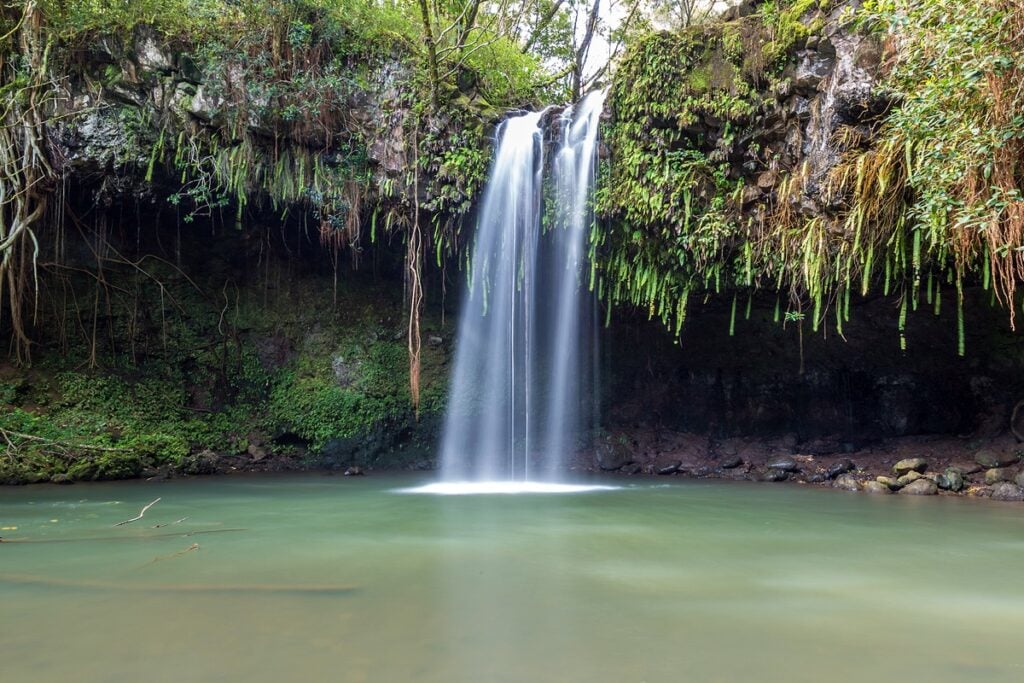Aquamation, also known as alkaline hydrolysis or water cremation, is an eco-friendly alternative to traditional cremation and burial. Hawaii, with its deep respect for nature and sustainability, has embraced aquamation as a modern and environmentally conscious end-of-life option. This gentle process aligns with the state’s cultural values and commitment to preserving its natural beauty.
What is Aquamation?
Aquamation is a process that uses water, heat, and an alkaline solution to accelerate the natural decomposition of the body. This gentle method replicates the earth’s natural cycles but in an expedited, controlled process. The result is bone ash, which is returned to the family, similar to traditional cremation.
Unlike flame cremation, aquamation does not involve burning. It produces no harmful emissions, uses 90% less energy, and avoids pollutants such as mercury, making it a sustainable choice for families who prioritize eco-conscious living.
Read more: Aquamation: 50+ Questions Answered
History of Aquamation in Hawaii
Hawaii legalized aquamation, also known as alkaline hydrolysis, in July 2022 with the signing of HB 1894 into law. This legislation reflects the state’s commitment to innovative and sustainable funeral practices. Since its legalization, aquamation has gained popularity, particularly in Honolulu, Hilo, and Maui, where families seek greener ways to honor their loved ones.
The cultural significance of respecting Hawaii’s land and natural resources has made aquamation a widely accepted option. The process aligns with the values of stewardship and environmental preservation deeply rooted in Hawaiian culture. In traditional practices, water, or “wai,” is considered sacred and integral to life, symbolizing wealth and sustenance. Aquamation’s gentle water-based method resonates with these cultural values, offering a respectful and environmentally friendly alternative to conventional cremation.
Aquamation closely approximates traditional Hawaiian burial rituals, which involved cleaning the bones (iwi) and preserving them—a practice that holds profound cultural importance. By providing clean bones suitable for traditional rites, aquamation supports the preservation of these customs within a modern legal framework.
Costs: Aquamation vs. Cremation
Aquamation in Hawaii typically costs slightly more than flame cremation but is far more affordable than traditional burial. Here’s a general cost comparison:
See also: Aquamation vs. Cremation
| Disposition Method | Cost Range |
|---|---|
| Aquamation | $2,500–$4,000 |
| Flame Cremation | $1,800–$3,500 |
| Traditional Burial | $10,000 or more |
Aquamation Costs in Hawaii
In Hawaii, aquamation costs range between $2,500 and $4,000. These costs generally include:
- Transportation of the deceased
- The aquamation process
- Processing and preparation of ashes
- Return of ashes to the family
Optional services, such as memorial ceremonies or custom urns, will typically increase the overall cost.
Factors Influencing Aquamation Costs
- Provider Location: Urban centers like Honolulu may have higher operational costs compared to rural areas.
- Service Packages: Adding options like memorial events or personalized urns will increase the cost.
- Size of the Deceased: Larger individuals may require additional processing, affecting pricing.
Who Regulates Aquamation in Hawaii?
In Hawaii, aquamation services are regulated by the Hawaii Department of Health, which oversees funeral and cremation providers to ensure compliance with state laws and environmental standards.
Environmental Benefits of Aquamation
Aquamation is one of the most environmentally friendly disposition methods, offering significant benefits over traditional burial and cremation:
- Energy Efficiency: Consumes up to 90% less energy than flame cremation.
- No Air Pollution: Avoids emissions of mercury and carbon dioxide.
- Water Safety: Water used in aquamation is treated and safely returned to the environment.
- No Embalming Chemicals: Reduces toxic chemicals commonly associated with traditional burial.
See also Environmental impact of funerals
Religious and Cultural Acceptance
Aquamation is gaining acceptance among diverse faiths and cultural communities in Hawaii. Many Christian denominations and environmentally conscious groups have embraced aquamation for its alignment with the principles of stewardship and sustainability. However, certain traditions may have specific preferences, and families are encouraged to consult their spiritual or cultural leaders.
See also: Aquamation Acceptance by Religion
Common Questions About Aquamation in Hawaii
Frequenlty asked questions about aquamation in Hawaii.
Is aquamation legal in Hawaii?
Yes, aquamation is legal and regulated in Hawaii, providing families with a sustainable alternative to traditional disposition methods.
How much does aquamation cost in Hawaii?
Aquamation typically costs between $2,500 and $4,000, depending on the provider and additional services selected.
Can aquamation ashes be scattered in Hawaii?
Yes, aquamation ashes can be scattered in Hawaii. State laws allow scattering on private property with permission or in public areas with the appropriate permits.
What happens to the water used in aquamation?
The water is treated and safely returned to the environment, following Hawaii’s strict environmental standards.
Does aquamation align with eco-conscious values?
Yes, aquamation is one of the most environmentally friendly disposition methods, making it an ideal choice for families who value sustainability.
Additional Aquamation Resources
For more detailed information, explore the following resources:






